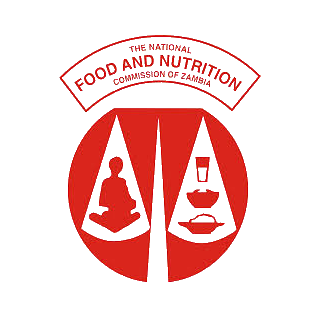By Lwandamo Katondo
Scaling Up Nutrition (SUN) program has, in its bid to eradicate malnutrition in the country, distributed 150 goats to 14 mother groups drawn from two wards of Kalabo district in Western province.
Speaking after flagging off the distribution, Kalabo District Commissioner Musangu Njamba said the goats cater for a total of 144 mother households in Ndoka and N’uma wards under the small livestock pass-on program.
Mr Njamba said that the Zambian Government is committed to empowering mothers with high content food supplements vital for good nutrition in the 1st 1000 most critical days of a child’s life.
“Government, with support from cooperating partners, is committed to ensuring that every mother is empowered in order to enhance their dietary diversity and reduce malnutrition, particularly stunting, among children and mothers in the target households,” he said.
Mr Njamba disclosed that mothers in the district were very happy and grateful for the empowerment.
“The intervention will translate into increased access to reliable cheap but high impact source of protein and other essential micronutrients as well as increased production, productivity, and income among the target beneficiaries.
“Remember (that) we have very few goats in our villages. So, for now, we have revamped the rearing and production of goats and goat products, respectively, not only for household consumption but also for economic livelihoods,” he said.
The District Commissioner stressed that government would continue to devise integrated interventions such as provision of small livestock to pregnant and lactating mothers in order to address child stunting and reduce vulnerability to nutrition inadequacy.
He said other benefits of the small livestock pass-on program include imparting skills in sustainable livestock husbandry, improved livelihoods and organic nutrition.
He added that the dung would serve as organic manure for conservation farming and improved household food security among rural mothers and children.
Mr Njamba has since implored the mother group beneficiaries to be prudent in managing the goats’ pass-on empowerment scheme, noting that they are torch bearers in spearheading measures aimed at ending malnutrition at household level.
“The Department of Veterinary Services will be going round to make sure that the goats are vaccinated against diseases,” he said.
As one of the best practices towards improved nutrition at household level, the SUN project in Kalabo district has been implementing the small livestock pass-on program since 2017 to enhance dietary diversity and fight against malnutrition among the target mothers and children who are vulnerable.
Meanwhile, District Livestock Production Extension Officer Paul Muchese said goat milk and meat are highly nutritious in protein and that the small livestock are economically viable due to their higher breeding rates.
Mr Muchese said that the small livestock pass-on program is popular among pregnant and lactating mothers as it seeks to address the challenge of stunting in children below 2 years of age.
“Households will benefit from both carcass and milk which are highly nutritious, in terms of proteins, to children. This will help reduce stunting,” he said.
Mr Muchese further said the mother group beneficiaries had already been who trained in goat management and that the animals had been vaccinated against major diseases.
“And the goats were distributed to groups which the trained beneficiaries had formed; seven groups in Ndoka and seven groups in N’uma (wards, respectively). Each group benefited at least a minimum of 10 goats depending on the numbers because each group was formed strategically by putting members from the same area in one group,” he said.
Mr Muchese further said that the advantages of rearing goats are that they have a fast and high breeding rate, easy to look after, not prone to diseases and are resilient to climate change in cases of poor pastures unlike other livestock such as cattle which require a high level of management.
He disclosed that the beneficiaries are after six months expected to pass-on the offspring to other target households as designed by the program.



